 Petzlover
Petzlover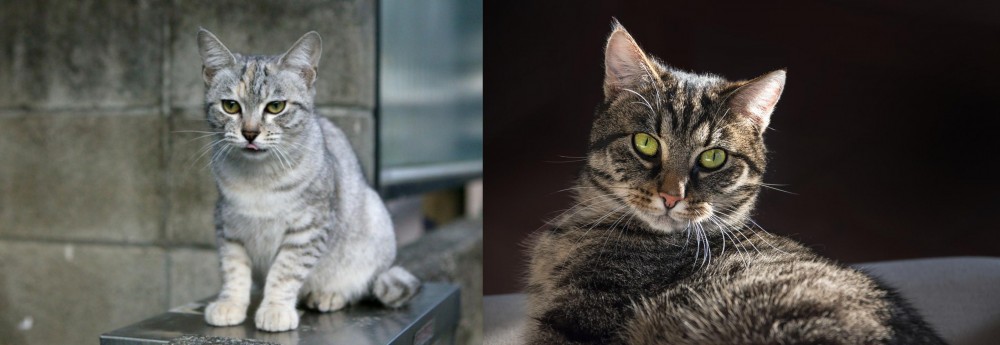 Australian Mist is originated from Australia but European Shorthair is originated from Sweden. Both Australian Mist and European Shorthair are having almost same weight. Both Australian Mist and European Shorthair has same life span. Both Australian Mist and European Shorthair has same litter size. Both Australian Mist and European Shorthair requires Low Maintenance.
Australian Mist is originated from Australia but European Shorthair is originated from Sweden. Both Australian Mist and European Shorthair are having almost same weight. Both Australian Mist and European Shorthair has same life span. Both Australian Mist and European Shorthair has same litter size. Both Australian Mist and European Shorthair requires Low Maintenance.
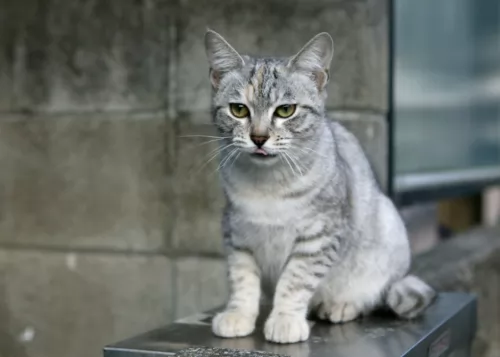 This beautiful cat, the Australian Mist was developed in Australia and is a cross between the Burmese Cat, the Abyssinian as well as domestic shorthairs.
This beautiful cat, the Australian Mist was developed in Australia and is a cross between the Burmese Cat, the Abyssinian as well as domestic shorthairs.
The breed was developed in 1975 by Truda Straede looking to bring about a short-haired cat with a ticked or spotted coat. At first the cat breed was known as the Spotted Mist but this changed to Australian Mist in 1998.
This is also because cats with marbled coats as opposed to spotted coats were accepted as part of the breed. This is an Australian cat but today there are some in UK, America and Germany.
The cat is recognized by governing councils Australia. The cats have a large gene pool.
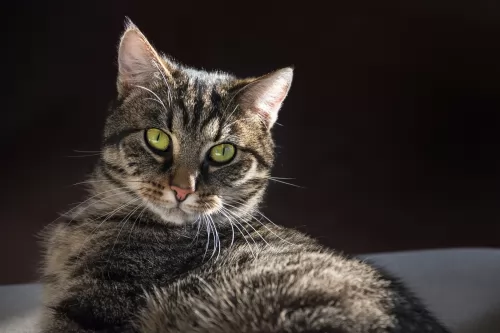 The European Shorthair is a cat breed that hails from Sweden but it also has roots that go back to the Roman Empire.
The European Shorthair is a cat breed that hails from Sweden but it also has roots that go back to the Roman Empire.
It is referred to as a natural cat breed, which means that the cat came about naturally without any human intervention.
The cat has had great hunting skills and this has what has made it sought after as a cat to keep rodents at bay. It became a famous housecat as well.
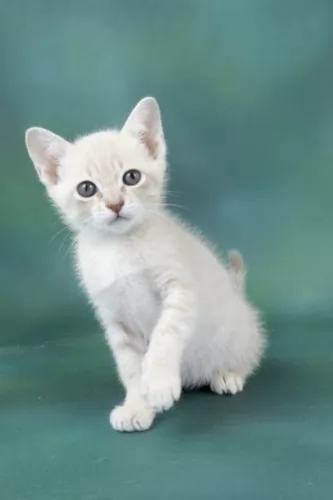 There is nothing particularly unusual about these beautiful cats as the Australian Mist is a medium-sized cat weighing between 4 to 7kg. Its short coat comes without an undercoat and it is a low-shedding cat.
There is nothing particularly unusual about these beautiful cats as the Australian Mist is a medium-sized cat weighing between 4 to 7kg. Its short coat comes without an undercoat and it is a low-shedding cat.
The coat can be spotted or marbled and the legs and tail come with a pattern of black rings. The cat’s coat is short and comes in a number of colors – gold, peach, brown, blue, lilac, chocolate and caramel.
The Australian Mist has large, bright, expressive green eyes with a rounded head and a furry tail.
The Australian Mist is known for its exceptional temperament, and they don’t mind being picked up and cuddled. For this reason they make great cuddly pets for first-time cat owners as well as homes with children.
He is more than willing to get on with other pets in the home as well. They’re lively cats and will not mind being put on a leash and going for a walk, although because they are such cats that thrive on human company, this cat is willing to spend the entire day indoors with their human family.
These companionable cats make excellent animal friends for invalids.
Desexing your Australian Mist will ensure that he likes to stay close to home and become a solid family member.
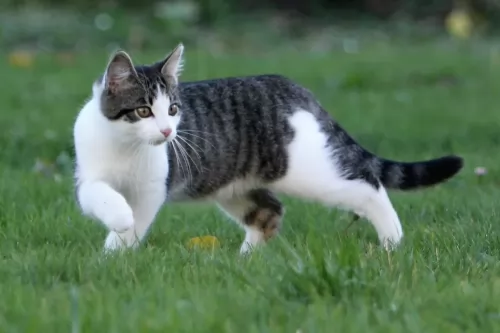 These domestic cats of Europe are a medium- to large-sized cat, weighing between 4 and 6kg, though some can be heavier.
These domestic cats of Europe are a medium- to large-sized cat, weighing between 4 and 6kg, though some can be heavier.
The European Shorthair has a fairly large head and medium-sized ears. The body is robust and round shaped. The cat’s short coat without an undercoat comes in a range of colors and patterns such as white, cream, red, black and blue with eyes that are green, yellow, brown or copper or blue.
The European Shorthair is known for its adaptable nature and the cat is able to fit into different lifestyles with ease. It's a cat that will live happily with children, pets, adults and seniors.
The cat loves his human family and loves becoming involved with fun games and activities. It's an intelligent cat too and cat food puzzles help him to think about how to get his food.
Even though your cat is social with his human family, it becomes fairly shy and nervous of strangers.
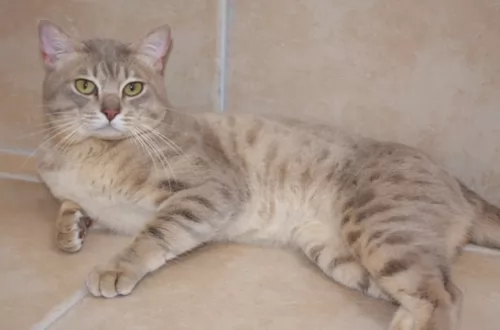 The Australian Mist is capable of becoming the perfect pet for single people, couples, families, the sick, and the elderly.
The Australian Mist is capable of becoming the perfect pet for single people, couples, families, the sick, and the elderly.
They just thrive on human companionship and love the indoor life. You can expect to have your furry companion with you for a good time as their life expectancy is into the late teens – if you provide them with a happy, comfortable home.
Bring one of these wonderful fur companions into your home and you’ll see that the Australian Mist is ready to quickly become a member of your unique family.
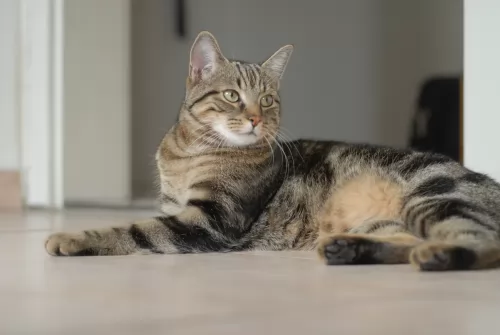 The European Shorthair is such a sweet cat and he is able to adapt fairly easily to new environments. It is such an ideal cat for households with singles, couples, families, and seniors as it adapts its personality to suit, getting on well with other pets as well.
The European Shorthair is such a sweet cat and he is able to adapt fairly easily to new environments. It is such an ideal cat for households with singles, couples, families, and seniors as it adapts its personality to suit, getting on well with other pets as well.
The cat loves his human family and wants to please, but loves to play too, being active and playful. Having one of these cats in your home is like bringing in a treasured gem.
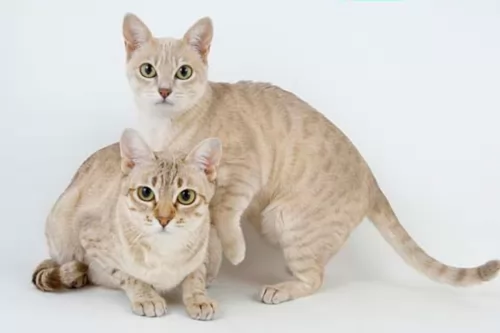 These are generally long-lived cats and with good health, these robust cats from Australia can live well into their teens.
These are generally long-lived cats and with good health, these robust cats from Australia can live well into their teens.
The Australian Mist hasn’t got any particular health care issues, but as with every cat, it is a good idea to see that he gets to the vet for an annual check-up to make sure all is still well.
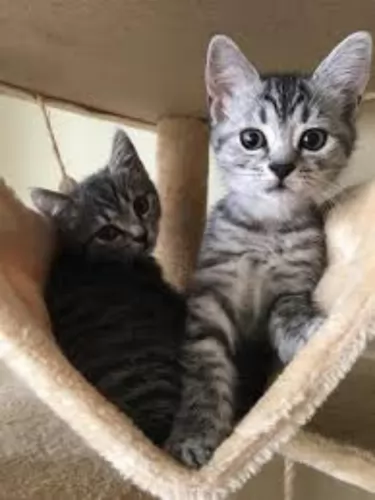 Even if your European Shorthair appears to be well, it is a good idea to get used to taking your cat to the vet for an annual check-up.
Even if your European Shorthair appears to be well, it is a good idea to get used to taking your cat to the vet for an annual check-up.
To provide your cat with the best chance to remain healthy, good diet and exercise is imperative. Look out for an itchy skin too as this could well be a sign that your cat is being plagued by parasites. Parasites can be a terrible problem and it will need to be attended to by your vet.
Parasites and an itchy skin can be a nightmare for your pet and make him most miserable with excessive scratching and licking as well as thinning of hair.
A new kitten will also require being vaccinated to ensure he remains healthy. These injections protect your cat from life-threatening diseases. Usually, vets start vaccines at between 8 – 12 weeks of age to protect your cat against the likes of Feline Leukaemia Virus, Feline Infectious Enteritis and Cat Flu.
There are also other vaccinations you might want to consider such as rabies and chlamydia.
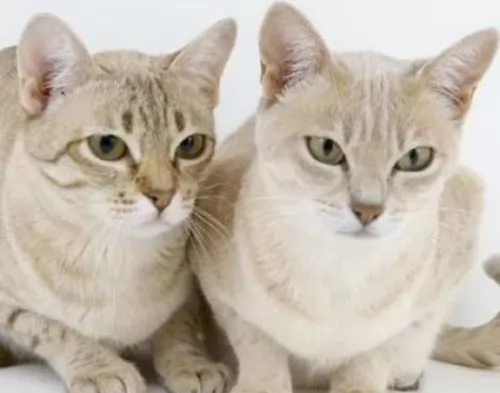 They’re moderate shedders and the short lying coat of this cat won’t require much grooming. It is always a good idea to brush a short-haired cat like the Australian Mist at least just once a week to get rid of dust and loose hairs. Of course, the cat thrives on the attention that comes with brushing him as well.
They’re moderate shedders and the short lying coat of this cat won’t require much grooming. It is always a good idea to brush a short-haired cat like the Australian Mist at least just once a week to get rid of dust and loose hairs. Of course, the cat thrives on the attention that comes with brushing him as well.
Because your Australian Mist is a fairly active cat you want to buy commercially manufactured cat food that is of the highest quality to maintain his health and condition.
These cats are prone to putting on weight and you want to ensure the right food portions to maintain his weight.
He should never be without a constant supply of fresh, cool water. A good diet for your cat can go a long way to eliminating- or cutting down on veterinary expenses.
If you’re unfamiliar with what to feed your cat, your furry friend’s basic nutrition needs will require having good protein from meat, fish and poultry. You always want to be sure that Taurine, an essential amino acid is always included in the food as well as other important vitamins, minerals, fatty acids and enzymes.
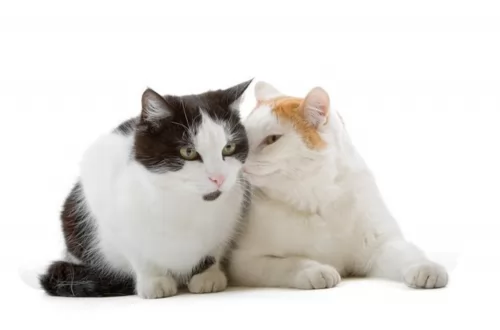 European Shorthairs like to groom themselves, but even so, you want to brush your cat once a week to keep the hair shiny and healthy. Make sure to trim your cat’s claws at the same time. It’s your time to feel for any unusual lumps or scratches on your feline friend’s skin. Check his eyes and make sure they are still bright and clear, look inside the ears to make sure they aren’t becoming clogged with dirt and wax and look inside the mouth to ensure no signs of gum- and tooth disease.
European Shorthairs like to groom themselves, but even so, you want to brush your cat once a week to keep the hair shiny and healthy. Make sure to trim your cat’s claws at the same time. It’s your time to feel for any unusual lumps or scratches on your feline friend’s skin. Check his eyes and make sure they are still bright and clear, look inside the ears to make sure they aren’t becoming clogged with dirt and wax and look inside the mouth to ensure no signs of gum- and tooth disease.
Your cat may well be outgoing with his human family, but his nervousness with strangers will require you providing him with a safe haven of his own. This might be his own bed which should be in a safe, dry, quiet area where he can retreat and feel more secure.
European Shorthairs love being outdoors and particularly if you have a female you’ll want her spayed to avoid her becoming pregnant. Cat shelters are already full of unwanted kittens and you don’t want to add to the burden. Also, have your male neutered too as he is ar less likely to want to roam. Spaying and neutering come with many health benefits too.
Be very careful of your cat’s diet. This is because the domestic cat is a carnivore and still essentially a predator, liking to hunt for their meat. They require a meat diet. However, cats have special dietary requirements and they require a balanced diet. All cats are individuals and they have different food likes and preferences, but they all need the best food there is to remain in peak condition. If you feed your cat commercially manufactured food, always follow the instructions on the label.
Provide your feline pet with cat accessories – food and water bowl, collar and tag, soft bedding, a climbing tree, scratching post, litter box, grooming accessories and toys.